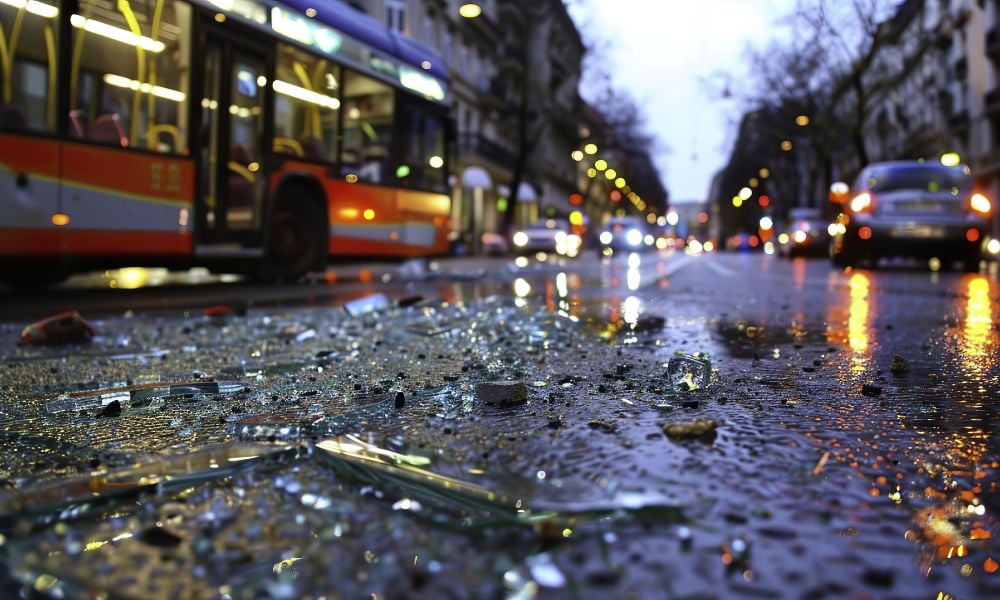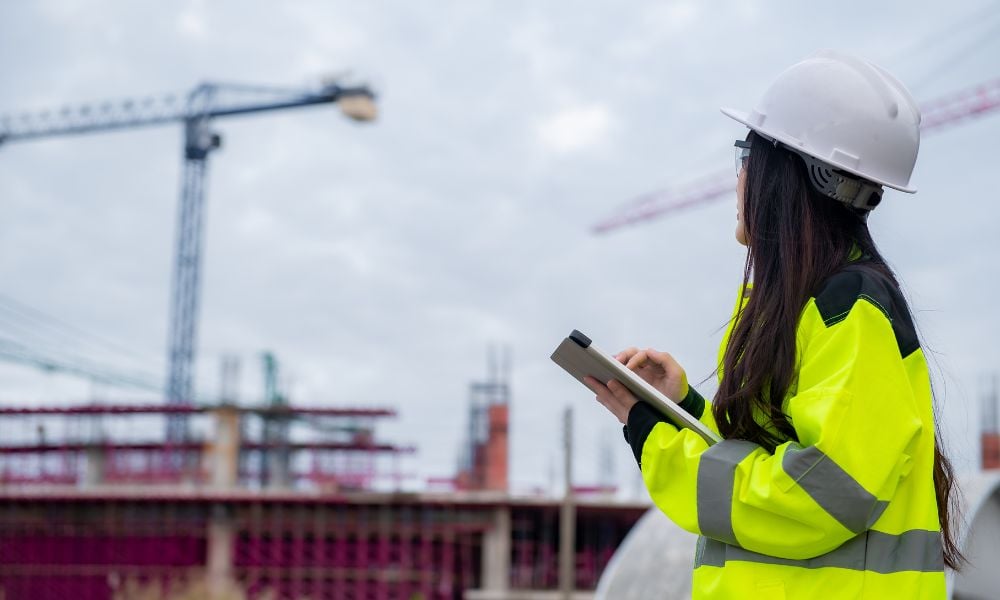Southwestern Resources Canada has stopped all seismic testing in New Brunswick due to concerns for their workers' safety amid mounting protests against the company's gas exploration program.
FREDERICTON — Southwestern Resources Canada says it will resume its search for shale gas in New Brunswick next year after prematurely stopping all seismic testing in the province, citing safety concerns for its workers.
Tom Alexander, manager of the Texas-based company's New Brunswick operation, said protests would not put a halt to its plans despite what he described as a campaign of misinformation mounted by opponents of shale gas development.
"Keep in mind this is an exploration program," Alexander said Monday. "Seismic is a very benign activity, not going to hurt anybody's water well or damage foundations or blow out windows like the opposition claims."
He said crews will be back next year to continue their search for the natural gas deep underground between layers of shale rock.
But until then, the company has put all seismic testing on hold because of safety concerns that Alexander said arose from escalating protests.
"There have been several physical assaults on personnel and tens of thousands of dollars in equipment stolen, damaged or destroyed, and it just made sense to suspend operations at that point because there were threats of continued violence," he said.
A spokesman for the RCMP would not say whether there is an investigation into the alleged assaults.
In recent days, protesters have staged demonstrations at test sites, public meetings and government buildings.
Some citizens groups and environmentalists have expressed concerns about possible contamination of groundwater supplies that could result from hydraulic fracturing or fracking. The process involves forcing cocktails of chemicals, water and sand into a gas well to fracture the layers of shale rock and release trapped pockets of natural gas.
Terri Telasco, spokeswoman for the group Ban Fracking N.B., said she hasn't witnessed any vandalism or assaults.
She said while some opponents may have exaggerated some information about shale gas exploration, the industry has not been completely open with the facts.
"I'm not a scientist but I do know that what I am seeing shows there is much too much risk to be moving forward with this, especially as quickly as they're trying to," she said.
Southwestern has a licence to explore more than a million hectares in the province, the largest area to explore for shale gas in New Brunswick. It expects to spend about $49 million in its three-year search.
"We made a commitment to the province in March 2010 when we were awarded the licence to search and we have every intention to stay with that," Alexander said.
Some protesters have said the future of shale gas exploration should be put to a referendum, but Premier David Alward has rejected that notion. A spokeswoman said Alward was unavailable for comment Monday.
Alexander said the government has done its homework to learn the facts about the industry, and his company will step up efforts to educate the public.
This is the second blow for the province's shale gas industry in recent months.
In May, Apache Canada announced it had pulled out of shale gas testing in New Brunswick after two test wells showed disappointing results.
Alexander said Apache was working in a different area of the province, and Southwest is still optimistic a large quantity of gas will be found.
He said if a New Brunswick gas find is similar to one in Arkansas, it could create about 10,000 long-term jobs and revenues of about $200 million per year in royalties for the province.
Southwest had hoped to make a decision on the location of a test well before the end of this year, but Alexander said that decision may be delayed.
"With all the theft and damage to equipment, there are going to be some gaps in data, so it's hard for us to determine if that will impact on our future plans."
FREDERICTON — Southwestern Resources Canada says it will resume its search for shale gas in New Brunswick next year after prematurely stopping all seismic testing in the province, citing safety concerns for its workers.
Tom Alexander, manager of the Texas-based company's New Brunswick operation, said protests would not put a halt to its plans despite what he described as a campaign of misinformation mounted by opponents of shale gas development.
"Keep in mind this is an exploration program," Alexander said Monday. "Seismic is a very benign activity, not going to hurt anybody's water well or damage foundations or blow out windows like the opposition claims."
He said crews will be back next year to continue their search for the natural gas deep underground between layers of shale rock.
But until then, the company has put all seismic testing on hold because of safety concerns that Alexander said arose from escalating protests.
"There have been several physical assaults on personnel and tens of thousands of dollars in equipment stolen, damaged or destroyed, and it just made sense to suspend operations at that point because there were threats of continued violence," he said.
A spokesman for the RCMP would not say whether there is an investigation into the alleged assaults.
In recent days, protesters have staged demonstrations at test sites, public meetings and government buildings.
Some citizens groups and environmentalists have expressed concerns about possible contamination of groundwater supplies that could result from hydraulic fracturing or fracking. The process involves forcing cocktails of chemicals, water and sand into a gas well to fracture the layers of shale rock and release trapped pockets of natural gas.
Terri Telasco, spokeswoman for the group Ban Fracking N.B., said she hasn't witnessed any vandalism or assaults.
She said while some opponents may have exaggerated some information about shale gas exploration, the industry has not been completely open with the facts.
"I'm not a scientist but I do know that what I am seeing shows there is much too much risk to be moving forward with this, especially as quickly as they're trying to," she said.
Southwestern has a licence to explore more than a million hectares in the province, the largest area to explore for shale gas in New Brunswick. It expects to spend about $49 million in its three-year search.
"We made a commitment to the province in March 2010 when we were awarded the licence to search and we have every intention to stay with that," Alexander said.
Some protesters have said the future of shale gas exploration should be put to a referendum, but Premier David Alward has rejected that notion. A spokeswoman said Alward was unavailable for comment Monday.
Alexander said the government has done its homework to learn the facts about the industry, and his company will step up efforts to educate the public.
This is the second blow for the province's shale gas industry in recent months.
In May, Apache Canada announced it had pulled out of shale gas testing in New Brunswick after two test wells showed disappointing results.
Alexander said Apache was working in a different area of the province, and Southwest is still optimistic a large quantity of gas will be found.
He said if a New Brunswick gas find is similar to one in Arkansas, it could create about 10,000 long-term jobs and revenues of about $200 million per year in royalties for the province.
Southwest had hoped to make a decision on the location of a test well before the end of this year, but Alexander said that decision may be delayed.
"With all the theft and damage to equipment, there are going to be some gaps in data, so it's hard for us to determine if that will impact on our future plans."





